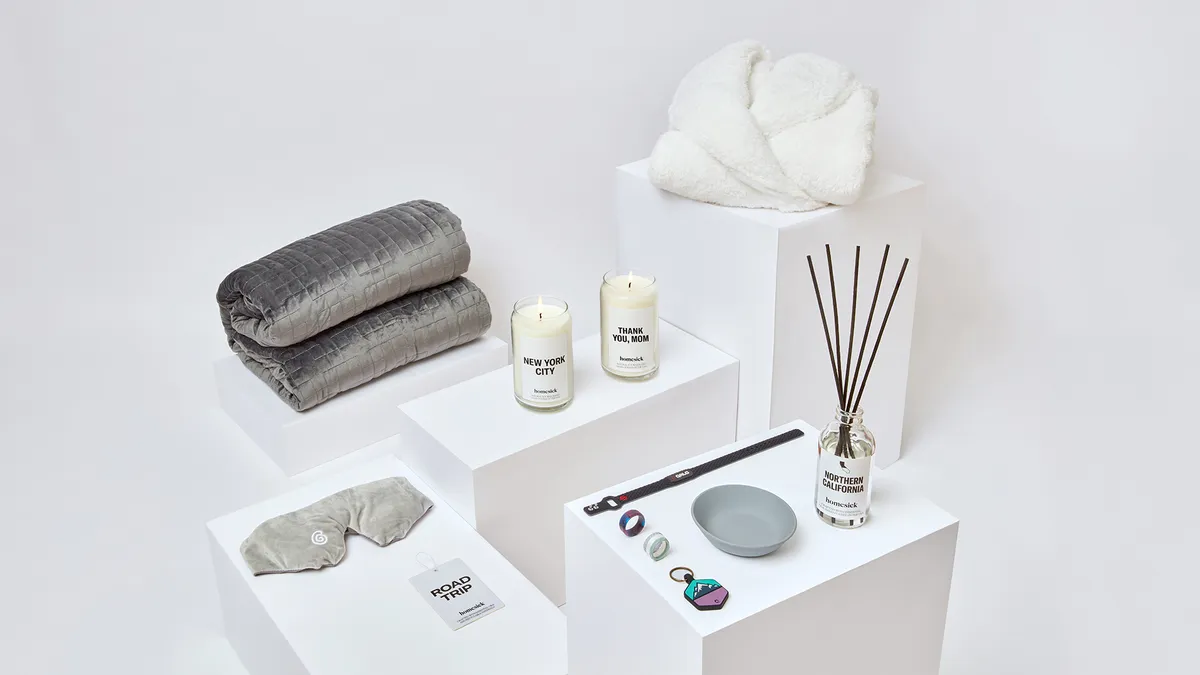Which DTC brands succeed and which fail is dependent on a variety of factors. It's not as simple as a great ad, a strong vision or a catchy name.
Retail is a complicated business, and requires a complicated skill set. As DTC brands have grown, that's driven them to pull in retail veterans for executive roles, sell to retail giants like Walmart or P&G, and look to investors for help scaling.
Venture capital funding has been the traditional route of many DTC brands looking for growth, but more nontraditional options have cropped up recently as brands look to scale slower and more profitably. Intimates manufacturer Gelmart, for example, launched its own DTC investment arm earlier this month, after helping incubate Lively. Its aim was to not only provide funding, but also expertise around manufacturing and supply chain.
Win Brands Group is another company looking to attract DTC brands on the expertise it can offer. The holding company acquires DTC brands and then scales them in a three-part strategy built on Shopify as the premier platform, then Amazon, and finally brick-and-mortar retail partners like Target and Walmart.
Just last week, the company added Gravity — the makers of the Gravity Blanket — to its stable, and announced a $50 million funding round from Assembled Brands and Oaktree Capital Management. Kyle Widrick, CEO and co-founder of Win, said he founded the company because of all the Shopify businesses he saw scaling unsuccessfully. His previous business was focused on Shopify and worked with brands like Kylie Cosmetics and Mizzen + Main, but some others lacked the skills necessary to scale.
"It's really difficult. There's just so much to know," Widrick said of founding a brand, calling out product sourcing and logistics, among other skill sets. "Across our brands, we sell direct online, we sell wholesale through [Electronic Data Interchange] to retailers, and we also sell on Amazon. And we like to run custom promotions on some of our products, like with Homesick, we do customization direct printing on the glass. So these things that sound simple on the surface end up becoming quite complicated."
Win's solution to that is to collect the expertise brands need, then collect the brands, and help them scale. The company has 12 key areas it focuses on as part of a shared services team, led by an expert in the space, including customer service, product sourcing and 3PL shipping. All the brands use those services and the founders can then focus on product innovation and community building rather than being held back by the operational aspects of the business.
Right now, the portfolio consists of Gravity, candle brand Homesick and silicone wedding ring company QALO. With fresh cash in hand, the goal for the next few years is to build that stable out to "as many incredible brands as we can," according to Widrick, with 100% of its new funding going toward mergers and acquisitions. Win will focus on companies in the spaces it's already operating in, which include home, gifting and sports. Widrick also looks for companies with a strong and loyal following, and favors brands that have a hero product, like Gravity's weighted blanket.
As the DTC space becomes more crowded and brands search for long-term success over short-term growth, Widrick sees the model as a benefit over other funding options that push for fast growth. He said Win plans to keep its investments for 10 years, and scale with that most elusive of figures in mind: profitability.
"There are a small percentage of consumer companies who are able to grow at a tremendous rate, call them unicorns ... That's a great option, obviously, for the small percentage of businesses that are able to see that level of success, but the reality is you really don't want to force too much scale too quickly," he said. "And that's why we focus on profitability. We want to see these brands growing double digits year over year from a percentage growth basis, but also be able to maintain profitability. Each brand, each investor looks at things a bit differently, but that's our focus."















